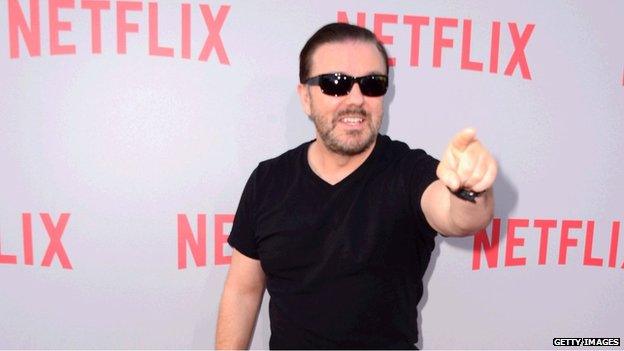Netflix takes gamble with Epix film cull in US
- Published
- comments

Netflix will soon not have many popular movies - including the Hunger Games starring Jennifer Lawrence
Thousands of movies will be removed from Netflix in the US after the streaming service decided not to renew a deal with distributor Epix.
Removed titles will include the Hunger Games and Transformers movies.
Netflix, which has more than 60 million subscribers worldwide, said it wanted to focus on exclusive content.
Rival US service Hulu will take on the Epix catalogue. "Our subscribers have been asking us for more, and more recent, big movies," Hulu said.
"We listened. Through this new deal with Epix, we are proud to now be able to offer a huge selection of the biggest blockbusters and premium films."
Netflix's deal with Epix - which was worth a reported $1bn (£650m) - runs up until the end of September 2015, at which point the films will disappear from the service.
Explaining the move to subscribers, Netflix's chief content officer Ted Sarandos wrote, external: "While many of these movies are popular, they are also widely available on cable and other subscription platforms at the same time as they are on Netflix and subject to the same drawn out licensing periods."
He then went on to list a variety of exclusive shows coming up on the service, including new work from Ricky Gervais, Idris Elba and Adam Sandler.
He also praised an upcoming Netflix-made documentary about Rolling Stones guitarist Keith Richards.
'Data decision'
As competition between video on demand (VOD) services intensifies, Netflix's decision may appear to be an unlikely move.
However, Forrester analyst Jim Nail said he believed the company was making a calculated gamble.

Netflix is banking on original content, from the likes of Ricky Gervais, will set it apart
"Netflix is a very smart data company," he told the BBC.
"They didn't make this decision without looking at how many people are viewing these titles."
He said Netflix was positioning itself to be considered a luxury service with high-quality offers rather than an enormous library.
"They're not trying to please everyone. They're pleasing people who want premium content. That's not all of America."
Globally, Netflix faces similar battles.
In the UK, its film library - which is distinct from its US catalogue - is hindered thanks to existing deals between movie distributors and Sky, which has its own on-demand offering, Now TV.
Exclusive battle
As well as signing content deals, VOD services are investing heavily in creating original content. The platform is seen by some in the industry as a welcome alternative to the commissioning processes and priorities of established cable networks and film studios.
The approach is reaping dividends. At this year's Emmy awards, Netflix enjoyed 34 nominations, while Amazon - it too a major VOD player - earned 12.
Yahoo, a minor player at this stage, earned one nomination for Community - a comedy that had been cancelled by US network NBC.
The breadth and success of VOD programming means Netflix's decision is a reflection that no single firm will be able to dominate the market, said Mr Nail.
"Netflix is thinking about what they want their role in the viewers' video consumption to be, as opposed to thinking they can monopolise all video consumption.
"I think they're taking a bet here - but they've made those calculated bets in the past."